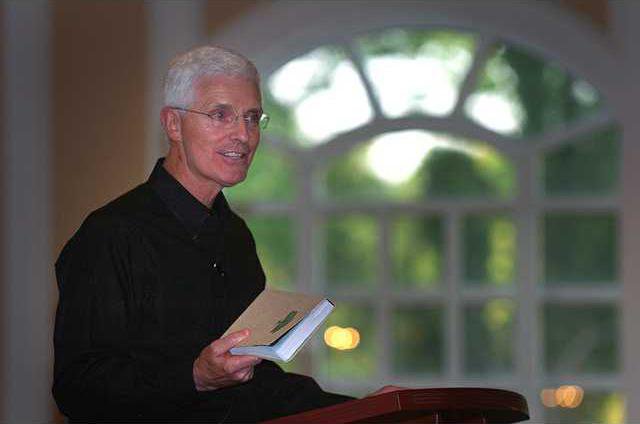The tenets of science, economy and religion often seem at odds, but scholars in all three fields gathered Thursday night for a discussion on the relationship between each study and the environment.
“It was a great opportunity to share different points of view and open a forum for communication in the community,” said Maria Zayas, moderator of the event and chairwoman of the sustainability program at Brenau.
It was a celebration of Earth Day that brought a small crowd to the First Baptist Church in Gainesville and featured the Rev. Bill Coates, senior pastor at First Baptist Church of Gainesville; Robin Gottfried, professor of economics at Sewanee: The University of the South in Sewanee, Tenn.; and Ed Schrader, a geologist and president of Brenau University in Gainesville.
Each panelist shared thoughts from his field and spoke of a need to protect the environment.
“If you believe that God created the universe, then natural science is an outgrowth of that creation,” Schrader said. And science is a pursuit of truth, he added.
Those who determine their feelings on an issue and then search for evidence to support their ideas will never be happy, he said. Those who search for truth, on the other hand, can recognize a problem like pollution and confront it.
In economics, Gottfried said much of the current system is based on the idea that more material items make people happier. But, he said, research shows that as long as basic needs are met, happiness doesn’t depend on “things.” It depends on quality relationships and being engaged with the world. Being engaged with the world also leads to being more engaged with spirituality and with God. And less stuff means less use of finite resources.
For Coates, happiness is achieved by knowing that “the earth is the Lord’s.”
“When we do harm to the earth, we do harm to the Lord,” he said.
So with all of this knowledge about the environment, what can people do practically to protect it?
It all comes down to choices, the panelists said. When you buy a carton of organic strawberries at the store, you make an ethical choice to support those farming methods. And that choice creates a market for that product, which continues the cycle.
If you choose to take a three-minute shower, it can lead to happiness, Coates said, because you know you’re protecting a valuable resource.
“Individuals need to make their choices and actions, and also the institutions need to make decisions and pursue the things that would allow us to cultivate the garden (of sustainability),” Zayas said.

